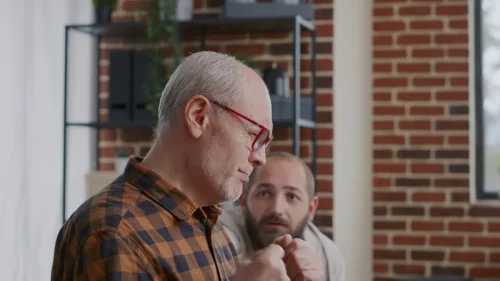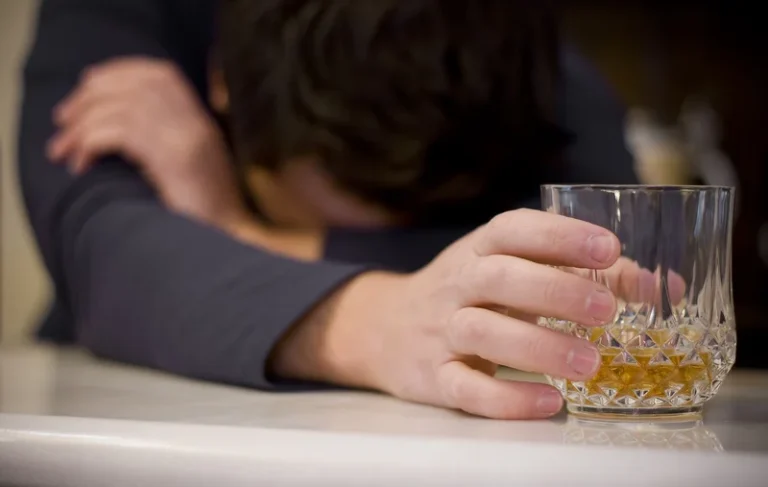Ozempic expert issues warning to those taking GLP-1 drugs with alcohol

An interaction occurs when one substance causes another substance to have a different effect than expected. Interested in learning more about metabolic health and weight management? Here’s everything you need to know about Rybelsus interactions and how to make the most out of your treatment.
Public Health
The American Heart Association (AHA) recommends limiting your intake to no more than one or two occasional drinks if you are on anticoagulant therapy. If you mix any type of anti-nausea drug with alcohol, the side effects of the medication can become more intense. Harmful physical effects such as seizures may occur in some cases. The longer a person misuses stimulants and alcohol together, the higher the risk becomes of developing substance use disorders.
- “If it turns out these GLP-1 medications are effective for treating alcohol use disorder, right out of the gate they will become the most widely used medication for addiction treatment,” predicts Simmons.
- However, even medications that don’t require a prescription can be unsafe when mixed with alcohol.
- You can look at medicine label ingredients to see what medicines have alcohol in them, or ask your pharmacist.
- That’s true for both over-the-counter and prescription medications—and even mixing alcohol with natural remedies, like St. John’s Wort, can be problematic.
- Cough syrup and laxatives may have some of the highest alcohol concentrations.
- If you have a medical condition (such as atrial fibrillation) that puts you at risk for developing a blood clot, your doctor might prescribe anticoagulant medications to “thin” your blood.
How can alcohol affect my medicines?
This is especially true if you are taking a medication that makes you sleepy or causes sedation. More intense side effects mean you might be more impaired after having one drink than you would typically be. The mixture of opiates and alcohol, for example, can cause your breathing to stop and is a common cause of death. If you have questions about taking Levemir with drugs that can increase blood sugar, talk with your doctor or pharmacist. This is a well-known side effect of corticosteroids, certain antipsychotics, and certain HIV drugs.

Causes & Risk Factors

The CNS depressant slows the functioning of the brain and Drug rehabilitation spinal cord. One in 10 teenagers and adults take antidepressant or anxiety medications every day, according to the Centers for Disease Control and Prevention (CDC). Many of these medications interact negatively with alcohol, particularly monoamine oxidase inhibitors (MAOIs), like Parnate (tranylcypromine) and Nardil (phenelzine). MAOIs can cause blood pressure to spike dangerously when combined with tyramine, an amino acid found in red wine and beer.
Combining alcohol with these medications increases the risk for an overdose and can make you feel more depressed. You can also experience drowsiness, dizziness, impaired motor control and coordination, difficulty breathing, strange behaviors, and heart or liver damage. Some of these medications can also make the effects of alcohol more extreme.

Does Nexlizet interact with vaccines?
- “My personal experience has really molded my professional practice,” says Klein, who got sober from alcohol and drug use in 2016.
- Specialized treatment facilities such as Agape Treatment Center offer treatment programs designed to address multiple substance abuse issues concurrently.
- We use only trustworthy sources, including peer-reviewed studies, board-certified medical experts, patients with lived experience, and information from top institutions.
- Many factors influence whether or not—and when—it’s safe to drink alcohol with or after taking your medication, including the kind of medicine, the type and amount of alcohol, and your age and sex.
- In closing, combining alcohol with certain medications, particularly those with sedative effects, can increase the risk of adverse events, including falls, driving accidents, and fatal overdoses.
- Whether the pain medication is OTC or a prescription drug, you should talk to your healthcare provider before drinking alcohol.
Older people are also more likely to be prescribed medication that interacts with alcohol in the first place. Drinking while taking a seizure medication like Keppra or Dilantin can leave you feeling drowsy or dizzy, and can actually increase the risk of a seizure. This CME/CE credit opportunity is jointly provided by the Postgraduate Institute for Medicine and NIAAA. Alcohol and medicines can cause harmful effects even if they’re not taken simultaneously.
Alcohol works by increasing the amount of inhibition in the brain. You might recognise this as a sense of relaxation and a lowering of social inhibitions when you’ve had a couple of alcoholic drinks. The chemicals in your brain maintain a delicate balance between excitation and inhibition. Too much inhibition and you will experience effects like sedation and depression. Combining alcohol and central nervous stimulants results in the potential for several serious issues.
- Doctors may prescribe beta-blockers to help lower the risk of heart disease and stroke in people with diabetes.
- It can be dangerous to use two or more drugs at the same time, or within a short time of each other.
- The medication can help you have fewer days when you drink heavily as well as drink less overall.
- Medications used to treat insomnia or help you fall and stay asleep should never be mixed with alcohol.
Can You Drink Alcohol While You’re on a Medication?
“This taking pills with alcohol is because some of my patients have been telling me that, even if they have just one drink and feel fine in the moment, they can get a heightened sense of a hangover the next day. If Levemir doesn’t come with paperwork, you can ask your pharmacist to print a copy. If you need help reading or understanding this information, ask your doctor or pharmacist. Note that beta-blockers don’t reduce other symptoms of hypoglycemia, such as headache, dizziness, nervousness, mood changes, and hunger. If you’ve had an allergic reaction to Levemir or any of its ingredients, your doctor will likely not prescribe Levemir. You can ask them about other treatments that may be better choices for you.
Prostate Medications

If you lie about the amount of alcohol you consume on a regular basis, your doctor can’t accurately judge the risks and benefits of https://ecosoberhouse.com/ prescribing a particular medication. Simmons sees the potential for GLP-1 drugs to treat addiction as being similar to the way SSRI antidepressants like Prozac became a major breakthrough for depression in the 1990s. In 2023, the father of two from Dallas told his doctor he wanted to stop drinking. “I had been questioning my relationship with alcohol for some time—it was my way of coping with stress,” says Cupps, 58, who works in the software industry. Because his doctor wanted him to drop some weight, she suggested that he try semaglutide.

